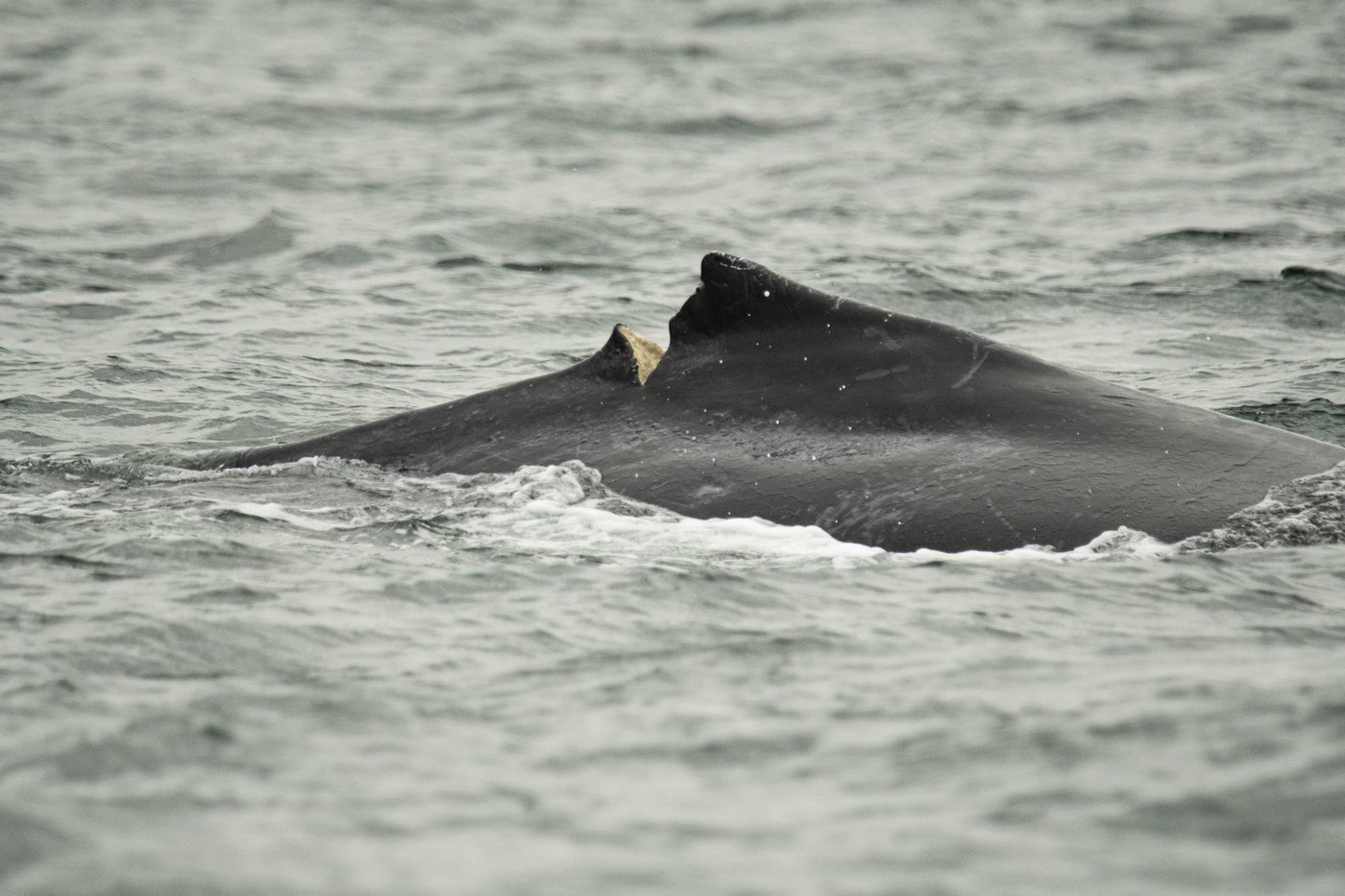Elevate your local knowledge
Sign up for the iNFOnews newsletter today!
Sign up for the iNFOnews newsletter today!
Selecting your primary region ensures you get the stories that matter to you first.

VANCOUVER — A group representing whale-watching operators has shared a photo of a young humpback with a deep gash in its back, which it said was likely inflicted by a ferry in waters off Vancouver last week.
The Pacific Whale Watch Association said in a social media post that the injured calf was spotted on Monday a few kilometres from the scene of Friday’s reported collision with a Hullo Ferries vessel.
The photograph shows a deep slice in the whale’s back at the base of the dorsal fin.
The association also shared a photo it said showed the same calf uninjured the day before the reported ferry strike.
The whale watch association said the calf was seen on Monday swimming with its mother, known as Zig Zag, and is urging caution from boaters.
“We’ve seen humpbacks recover from worse injuries than this, but Zig Zag’s calf needs time to rest and recover,” it said on Facebook on Tuesday.
“If you are a boater in the area, please be extra vigilant, and stay even farther away than 200 metres from this pair should you encounter them.”
Hullo Ferries, which operates high-speed catamarans between Vancouver and Nanaimo, said over the weekend that one of its vessels likely struck a humpback whale near Vancouver in English Bay on Friday.
The Fisheries Department said Tuesday that the association had been a “valuable partner” in the search for the injured whale.
“Given the seriousness of the injury it will be important to monitor the animal’s healing progress,” it said.
The department has previously said Hullo Ferries was co-operating with its investigation.
The department’s most recent report on its marine mammal response program nationwide said that between April 2022 and March 2023, there were a total of 2,100 reported incidents involving more than 2,400 animals.
These included reports of injuries, deaths, collisions and other incidents involving whales, seals and other mammals.
B.C. waters accounted for 949 incidents, 341 of which involved whales, porpoises and other cetaceans, while 569 involved seals and sea lions.
“Due to the complexity of marine animal incident response and the likelihood of under-reporting, the statistics may not reflect all incidents in the region,” the department said Tuesday.
This report by The Canadian Press was first published Oct. 21, 2025.
This site is protected by reCAPTCHA and the Google Privacy Policy and Terms of Service apply.
Want to share your thoughts, add context, or connect with others in your community?
You must be logged in to post a comment.